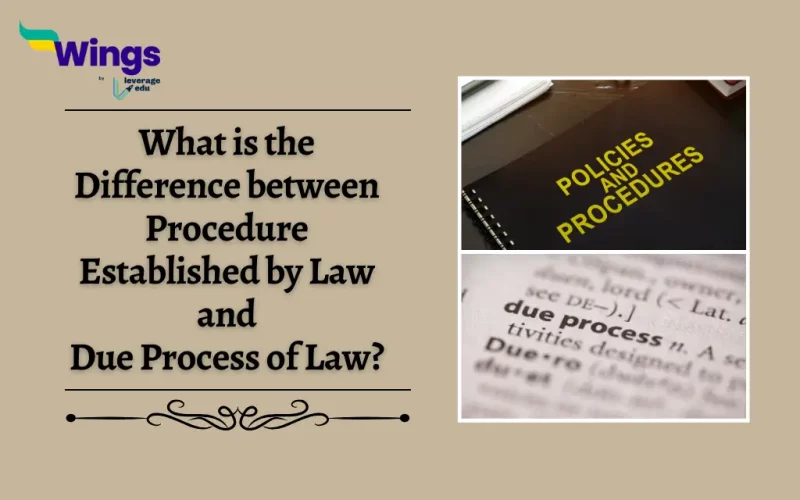In the Indian Constitution, Article 21 mentions that following the Procedure Established by Law is necessary when it comes to the life and liberty of a person. This focuses on the legal steps and rules as set by the government. On the other hand, there is no mention of the Due Process of Law in the Indian Constitution, but it makes sure that the rules and steps are just and fair whilst serving justice. Furthermore, this difference is important in guaranteeing that the government functions fairly and does not violate people’s rights without a good reason. Read on to learn about the Difference between Procedure Established by Law and Due Process of Law.
Difference between Procedure Established by Law and Due Process of Law
Additionally, here is a table that maps out the difference between both:
| Difference Between Procedure Established by Law and Due Process of Law | ||
| Feature | Procedure Established by Law | Due Process of Law |
| Meaning | This means that as long as there is a law in place, the government can deprive a person of their life and personal liberty. | This means that not only should there be a law in place, but the law must also be just, fair, and reasonable. |
| Source | Article 21 of the Indian Constitution. | Not explicitly mentioned in the Indian Constitution, but interpreted by the Judiciary. |
| Scope | Narrower- guarantees a law is passed correctly. | Wider- guarantees the process is just and fair. |
| Focus | It focuses on the procedure prescribed by the law itself. | It focuses on the procedural fairness of the law. |
| Borrowed from | This has been borrowed from the Constitution of Japan. | This has been borrowed from the Constitution of the USA. |
| Protection | It protects people against arbitrary actions of the state. | It protects people by guaranteeing that laws are not just rules, but are also fair, just, and reasonable. |
| Judicial Review | The Court’s role is limited to examining whether the legal procedure has been followed or not. | The Court can also review the substance of the law to confirm it meets the principles of justice and fairness. |
| Case Law | The case of A.K. Gopalan v. State of Madras (1950) emphasized the “Procedure Established by Law” doctrine. | Maneka Gandhi v. Union of India (1978) marked a significant shift towards the “Due Process of Law” approach. |
Related Blogs
Lastly, we hope you liked our blog and gained an understanding of the Difference Between Procedure Established by Law and Due Process of Law. Moreover, you may even read more blogs and empower yourself with knowledge regarding Civics and Polity!
 One app for all your study abroad needs
One app for all your study abroad needs













